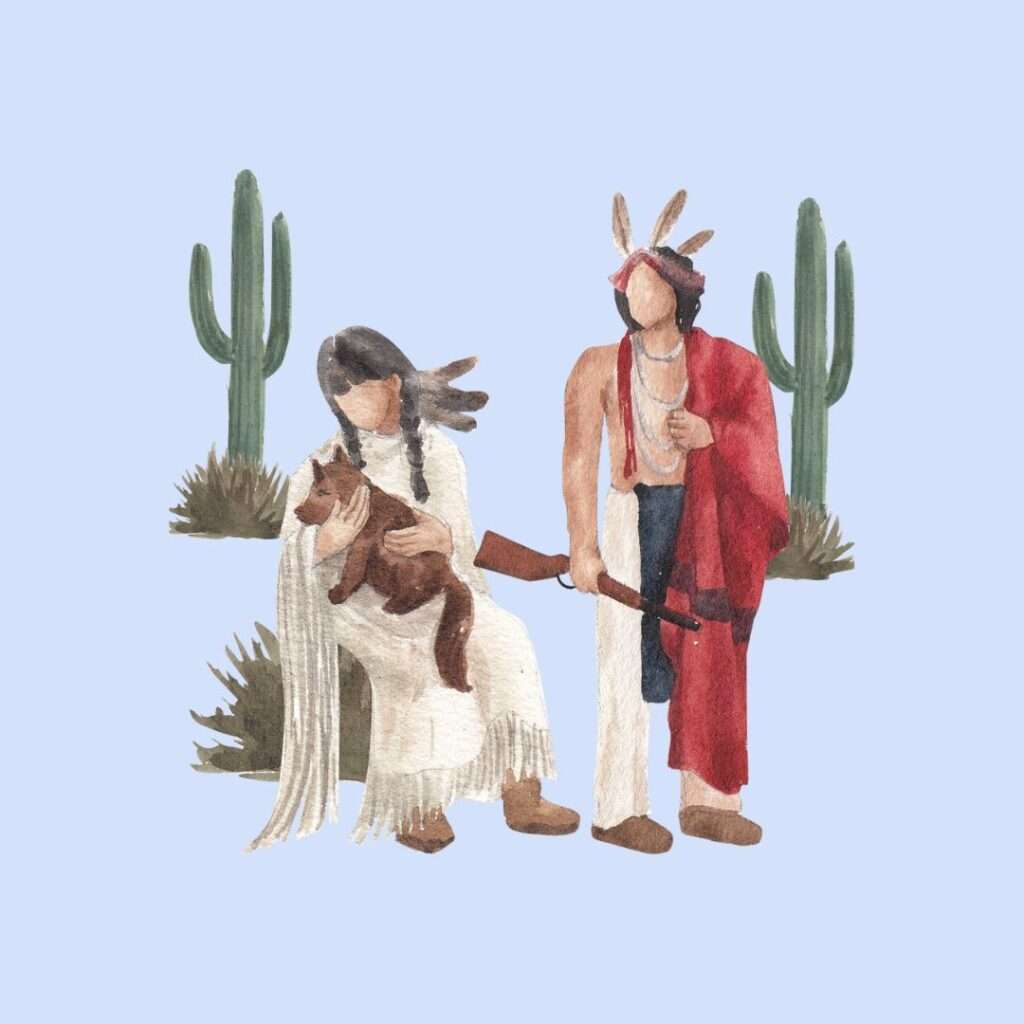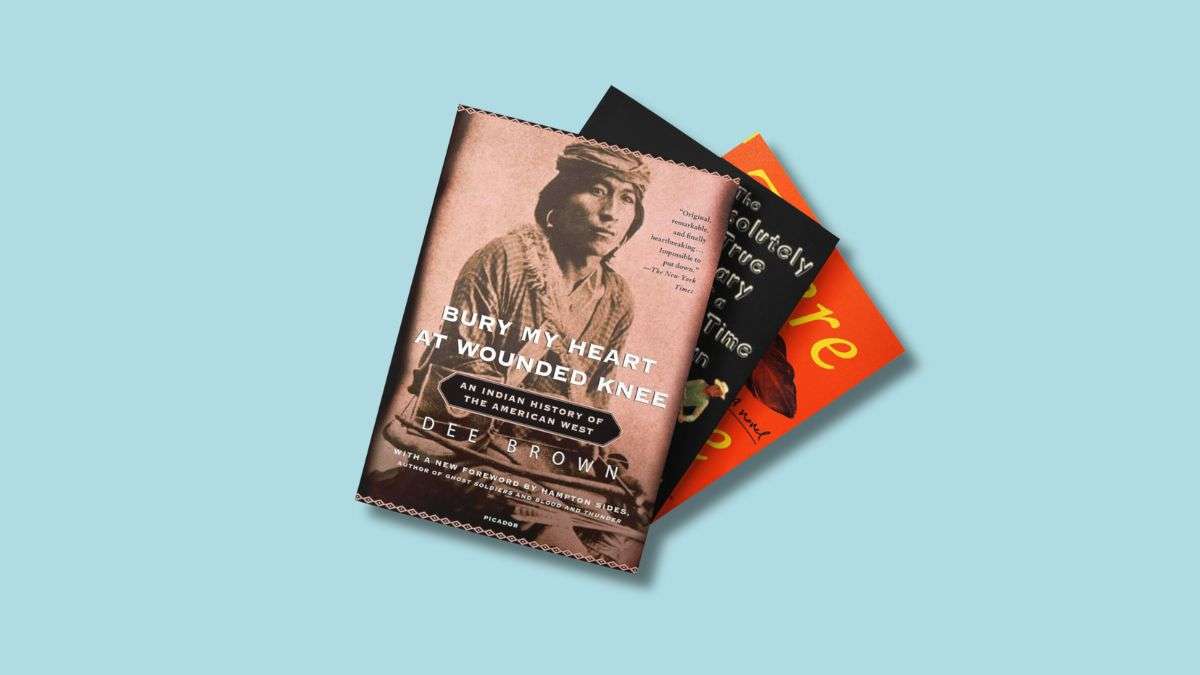Table of Contents
- Introduction
- 1. Bury My Heart at Wounded Knee by Dee Brown
- 2. The Absolutely True Diary of a Part-time Indian by Sherman Alexie
- 3. There There by Tommy Orange
- 4. Ceremony by Leslie Marmon Silko
- 5. Empire of the Summer Moon by S.C. Gwynne
- Conclusion
Introduction
What are some of the best books on Native American culture? Native American cultures have a vibrant tapestry woven with diverse traditions, languages, and ways of life that have shaped the history and identity of the United States.
With 574 federally recognized tribes and over 5 million individuals identifying as Native American or Alaska Native, it is crucial to understand and appreciate these communities’ rich heritage and contemporary experiences.
Literature offers a powerful avenue to explore Native American perspectives, and the following five books are essential for anyone seeking to deepen their knowledge and understanding of this vital part of American history and culture.
1. Bury My Heart at Wounded Knee by Dee Brown
Dee Brown’s groundbreaking book, Bury My Heart at Wounded Knee, offers a poignant and eye-opening account of Native American history from the late 1800s to the early 1900s. Through meticulous research and powerful storytelling, Brown sheds light on the devastating impact of westward expansion on Native American communities, chronicling the broken treaties, forced relocations, and brutal massacres that marked this dark chapter in American history.
One of the most haunting passages in the book describes the Wounded Knee Massacre of 1890, where U.S. cavalry troops killed over 200 Lakota men, women, and children. Brown writes:
“In the councils of government we have seen that they have contrived to make it an offense for us to drink of the life-giving water of the streams… We only ask an even chance to live as other men live. We ask to be recognized as men. We ask that the same law shall work alike on all men.”
This powerful quote encapsulates the injustices faced by Native Americans and their struggle for basic human rights.
Bury My Heart at Wounded Knee has had a profound impact on shaping cultural understanding and sparking discussions about the treatment of Native Americans throughout history. It remains a must-read for anyone seeking a more comprehensive and nuanced perspective on this critical aspect of American history.
2. The Absolutely True Diary of a Part-time Indian by Sherman Alexie
Sherman Alexie’s semi-autobiographical novel, The Absolutely True Diary of a Part-time Indian, offers a poignant and humorous look at contemporary Native American life through the eyes of Arnold Spirit Jr., a teenage boy growing up on the Spokane Indian Reservation. The book explores themes of identity, belonging, and the challenges faced by Native American youth as they navigate the complexities of straddling two worlds—the reservation and the predominantly white high school Arnold attends off the reservation.
One of the most striking aspects of the novel is its honest portrayal of the issues faced by many Native American communities, such as poverty, alcoholism, and limited educational opportunities. As Arnold grapples with these challenges, he finds solace in his art and his determination to break free from the cycle of despair that has trapped so many on the reservation.
“I used to think the world was broken down by tribes,” Arnold reflects. “By black and white. By Indian and white. But I know this isn’t true. The world is only broken into two tribes: The people who are assholes and the people who are not.”
Alexie’s novel has resonated with readers of all backgrounds, but it holds special significance for Native American students and educators who see their experiences reflected in Arnold’s story. The Absolutely True Diary of a Part-time Indian is a must-read for anyone seeking to understand the joys, sorrows, and triumphs of contemporary Native American life.
3. There There by Tommy Orange
Tommy Orange’s debut novel, There There, offers a kaleidoscopic view of urban Native American experiences through the interconnected stories of twelve characters as they prepare to attend the Big Oakland Powwow. The book explores the complexities of identity, belonging, and the legacy of historical trauma as these individuals navigate the challenges of maintaining cultural connections in a modern, urban setting.
One of the most striking aspects of There There is its vivid and poetic prose, which captures the beauty and brutality of the characters’ lives. Orange writes:
“Native people feel like refugees in their own country. The history of genocide, of being removed, carved out, burned down, it’s still with us.”
This powerful quote encapsulates the ongoing struggle of Native Americans to reclaim their identities and find their place in a society that has long sought to erase them.
Throughout the novel, the urban setting powerfully symbolizes the dislocation and disconnection experienced by many Native Americans. Yet, as the characters converge at the powwow, they find strength and solidarity in their shared experiences and cultural traditions. There There is a stunning and essential read that offers a fresh perspective on the diversity and resilience of Native American communities in the 21st century.
4. Ceremony by Leslie Marmon Silko
Leslie Marmon Silko’s novel, Ceremony, is a powerful exploration of the role of traditional ceremonies in healing and cultural preservation. The book follows Tayo, a young Native American man struggling to find his place after returning from World War II. As Tayo grapples with the trauma of war and the loss of his cultural identity, he embarks on a spiritual journey that leads him back to the traditional ceremonies of his people.
Silko’s lyrical prose captures the beauty and power of these ceremonies, which serve as a bridge between the past and the present, the living and the dead. Through Tayo’s journey, Silko explores the devastating impact of colonization on Native American communities and the importance of preserving cultural practices in the face of overwhelming odds.
“I will tell you something about stories,” Silko writes. “They aren’t just entertainment. Don’t be fooled. They are all we have, you see, all we have to fight off illness and death.”
Ceremony is a testament to the enduring strength and resilience of Native American cultures and the power of traditional practices to heal and transform. The book offers a deep and nuanced exploration of the complexities of identity, belonging, and historical trauma, making it an essential read for anyone seeking to understand the Native American experience.
5. Empire of the Summer Moon by S.C. Gwynne
S.C. Gwynne’s Empire of the Summer Moon is a sweeping historical account of the rise and fall of the Comanche tribe, one of the most powerful and influential Native American groups in American history. The book chronicles the life of Quanah Parker, the last great Comanche chief, and the brutal and bloody conflicts between the Comanche and the settlers who sought to colonize their lands.
Gwynne’s vivid prose brings to life the rugged beauty of the American Southwest and the complex cultural and political landscape of the 19th century. He writes:
“The Comanches were the greatest horse tribe in the history of the Americas. In the whole history of the world. No other tribe anywhere ever had mastered the horse the way the Comanches had.”
This quote captures the awe and admiration that the Comanche inspired in their contemporaries, even as they faced the relentless onslaught of colonization.
Empire of the Summer Moon offers a nuanced and complex portrait of the Comanche people and their struggle to maintain their way of life in the face of overwhelming odds. The book is a must-read for anyone seeking to understand the impact of colonization on Native American communities and the enduring legacy of these conflicts in American history.
Conclusion
We have explored some of the best books on Native American culture, from the heartbreaking accounts of the Indian Wars in Bury My Heart at Wounded Knee to the poignant and humorous coming-of-age story in The Absolutely True Diary of a Part-time Indian. These books provide a rich and diverse tapestry of Native American perspectives.

By delving into these works, readers can gain a deeper understanding and appreciation of the challenges and triumphs of Native American communities and the enduring strength and resilience of these cultures in the face of overwhelming odds. These books serve as a powerful reminder of the importance of preserving and celebrating the rich heritage of Native American peoples and the ongoing struggle for justice and equality in American society.
